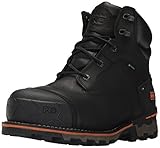What helps sore feet from standing all day?
7 Tips To Relieve Foot Pain From Standing All Day
- 1) Fill a plastic water bottle with water and freeze it.
- 2) Try soaking your feet in salt water.
- 3) Use a tennis ball to “self massage” your feet.
- 4) Give yourself a foot massage by manually stretching your toes and foot muscles.
- 5) Wear proper shoes.
How do you get used to being on your feet all day?
Chloe Aguilar, a Salem Health physical therapist, shares these tips to make working on your feet easier.
- Wear good shoes. If there’s anything you should be spending a lot of money on it’s a good shoe.
- Use good posture at work. Don’t lock your knees when standing.
- Move at work. These simple maneuvers can help.
Why do my feet hurt all day at work? You may have a condition such as bone spurs or plantar fasciitis. Bone spurs are a form of outgrowth, and plantar fasciitis is the result of damage or tearing in ligaments of the heel. Fallen arches can also contribute to your foot pain.
Our Top picks












Title
Wolverine Men'sOverpass 6" Mid Composite Toe Waterproof Work Boot, Summer Brown, 10.5 Medium
Timberland PRO Men's Boondock 6 Inch Composite Safety Toe Waterproof Industrial Work Boot, Black, 10
Cat Footwear mens Second Shift Work Boot, Dark Brown, 10.5 US
Red Wing Heritage Men's Iron Ranger Work Boot, Copper Rough and Tough, 8 D US
Rating

Title
Wolverine Men'sOverpass 6" Mid Composite Toe Waterproof Work Boot, Summer Brown, 10.5 Medium
Rating

Title
Timberland PRO Men's Boondock 6 Inch Composite Safety Toe Waterproof Industrial Work Boot, Black, 10
Rating

Title
Cat Footwear mens Second Shift Work Boot, Dark Brown, 10.5 US
Rating

Title
Red Wing Heritage Men's Iron Ranger Work Boot, Copper Rough and Tough, 8 D US
Rating
How do you work when your feet hurt?
4 Ways to Find Relief from Foot Pain
- Wear Proper Shoes. This may seem like common sense, but it’s essential to wear shoes that fit well.
- Stretch it Out. Overstressed muscles will tend to contract or spasm.
- Consider Your Posture.
- Soak in Epsom Salt.
